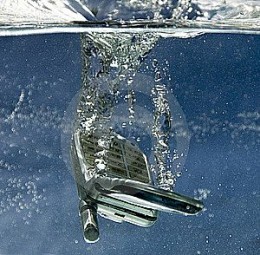Author Stephen King predicts that the physical book will “be here for a long, long time.” In an interview with The Huffington Post, the famed horror novelist talks about why he doesn’t think books will meet the same end as “compact discs or even phonograph records.”
-----
Author Stephen King predicts that the physical book will “be here for a long, long time.” In an interview with The Huffington Post, the famed horror novelist talks about why he doesn't think books will meet the same end as “compact discs or even phonograph records.” One reason he gave is that books have been around for more than 300 years and there is a “deeply implanted desire” within society for them. Follow this link to watch the entire interview.King has been working on a number of projects as of late. He wrote the script for a film adaptation of his short story, A Good Marriage, and soon he will go on a book tour in promotion of his new novel, Revival. What do you think?
Source GalleyCat
-----Précis
I think he is right and physical books will be here to stay. My prediction is that we'll see a split where some Classes like Arts and Recreation, which include fiction and general non-fiction, any sort of linear read will go digital and soon over take sales of paper and hard back. Whereas other classifications like which include text books, (a Bible, or Lexicon, for example) where jumping back and forth between sections is a part of studying the contents, these books will stay physical.
My Notes on the Interview.
The video interview is about 40 minutes long. He discusses a lot of issues, the first 23 minutes are about his film adaptation of A Good Marriage, writing, collaborative writing, being an alcoholic, John Mellencamp and R.L Stine. Around the 24 minute mark he makes his comments about physical books verses the e-book. The above article pretty much sums up what he said they didn't talk much about it at all.The Pro's of eBooks
King said people are saying you can see the same progression with books to e-books, as you did with music. Music went from records, cassettes to CD's to electronic medium. But he doesn't see us giving up the physical book altogether. He loves e-books because you can adjust the font size so older people can see the words better, a sentiment that was expressed to me nearly everyday, when I worked in my bookshop. People wanted books with larger print. I would always have large print Bibles on the shelf and could sell them easily, but I digress. King believes that the major 'pro' about the e-book was that you could shop a website or electronic book shop and 'blam' the book is ready for you no waiting.The Difference between eBooks and eMusic
Getting back to the difference between electronically stored music verses electronically stored books, King mentions that the big difference with audio recording is that they have been around a shorter time than books. Books have been around for about 300-400 years* so there is a “deeply implanted desire” within society, "the wanting and needing of books, there is deeper well of human experience with books that isn't there with music".The Con's of eBooks
 |
| source |
Stephen King on Faith and Religion
As I have an interest in faith I kept listening. King stated that he was an agnostic but could see the hand of something greater than us when looking at the design of this world and the fact that we seem to be the only life in the universe even after a lot of searching has been done. King mentioned that at the end of all religions there is someone trying to put a gun or saying 'My god is better than your god' which is why he is agnostic.The interview goes on to discuss US foreign policy and politics in general. I very wide ranging interview in all. If you've got a spare 40 minutes it is worth listening because he doesn't pull his punches on certain topics and he is well spoken and forthright.
The article from Galley Cat ends 'What do you think?'
Here's my response to that question after watching the video:
I think he is right and physical books will be here to stay. My prediction is that we'll see a split where some Classes like Arts and Recreation, which include fiction and general non-fiction, any sort of linear read will go digital and soon over take sales of paper and hard back. Whereas other classifications like which include text books, (a Bible, or Lexicon, for example) where jumping back and forth between sections is a part of studying the contents, these books will stay physical.
I'd be interested in hearing what you think.
Liked what you read? Why not...
Then head over to my Facebook page The BistroMath to join the conversation. You can also follow me on Twitter or YouTube. To do so click on the images below.
*Well, even longer, if you are counting hand written books and scrolls, but even the printing press has been around since about 1450-1475. 550 years or so but, hey who's counting.






Comments
Post a Comment
Feedback is welcome.